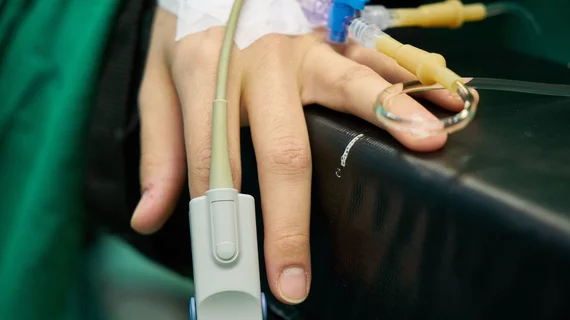Algorithm predicts dialysis need in COVID patients upon admission
The novel coronavirus has shown a nasty penchant for targeting the kidneys, and physicians can’t always tell which patients will need dialysis until they do. By then it’s often too late to save a life.
A new machine learning model has proven accurate at making the call early enough to allow for advance planning, preparation and patient routing.
Lili Chan, MD, and colleagues at the Icahn School of Medicine at Mount Sinai described their work developing and testing the algorithm at a virtual national meeting of the American Society of Nephrology, which concluded over the weekend.
The team trained their model on data from more than 3,000 patients who were both hospitalized and COVID-positive. The researchers only included information gathered withing 48 hours of admission, challenging the AI to predict which patients with acute kidney injury would require dialysis.
In the test phase, the model delivered high accuracy (AUC of 0.79). The results showed the most valuable at-admission predictors to be blood levels of creatinine and potassium, age, and vital signs of heart rate and oxygen saturation.
“A machine learning model using admission features had good performance for prediction of dialysis need,” Chan says in a news release. “Models like this are potentially useful for resource allocation and planning during future COVID-19 surges. We are in the process of deploying this model into our healthcare systems to help clinicians better care for their patients.”
In another recent research project, Chan and colleagues found that, of nearly 4,000 COVID patients hospitalized in New York City, some 46% had acute kidney injury. Among these, 19% needed dialysis, and half of them died in the hospital.

